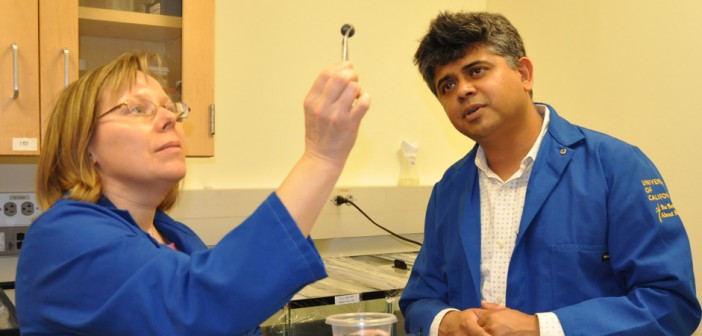Scientists at the University of California, Riverside have now identified a safe repellent that protects fruits from the spotted wing Drosophila (Drosophila suzukii), an important crop pest in Europe and Northern California.
Butyl anthranilate (BA) is a pleasant-smelling chemical compound which is naturally produced in small amounts in fruit. In laboratory experiments, the scientists found BA warded off D. suzukii from blueberries coated with it. The finding, when extrapolated to other agricultural pests, could provide a strategy for controlling them and increasing the productivity of crops and fruit.
“Toxic insecticides are often risky to use directly on fruits, especially when they are close to being harvested,” said Anandasankar Ray, an associate professor of entomology and the director of the Center for Disease Vector Research at UC Riverside, whose lab performed the research project. “A safe and affordable repellent such as BA could provide protection and reduce use of toxic chemicals.”
To test whether BA can protect fruit from D. suzukii, Ray and his graduate student Christine Krause Pham conducted a series of experiments using two bowls of fresh, ripe blueberries – a preferred fruit of D. suzukii. “We saw decreases after only a single treatment,” Pham explained. “We saw substantial decreases at 2.5 percent of BA and nearly complete protection at the 10 percent concentration, strongly indicating that insect repellents with good safety profiles can be useful to reduce fruit damage during ripening.”
Professor Ray says that the next step is to test how efficacious BA is in field trials.

The post Natural repellent for Drosophila suzukii appeared first on Hort News.